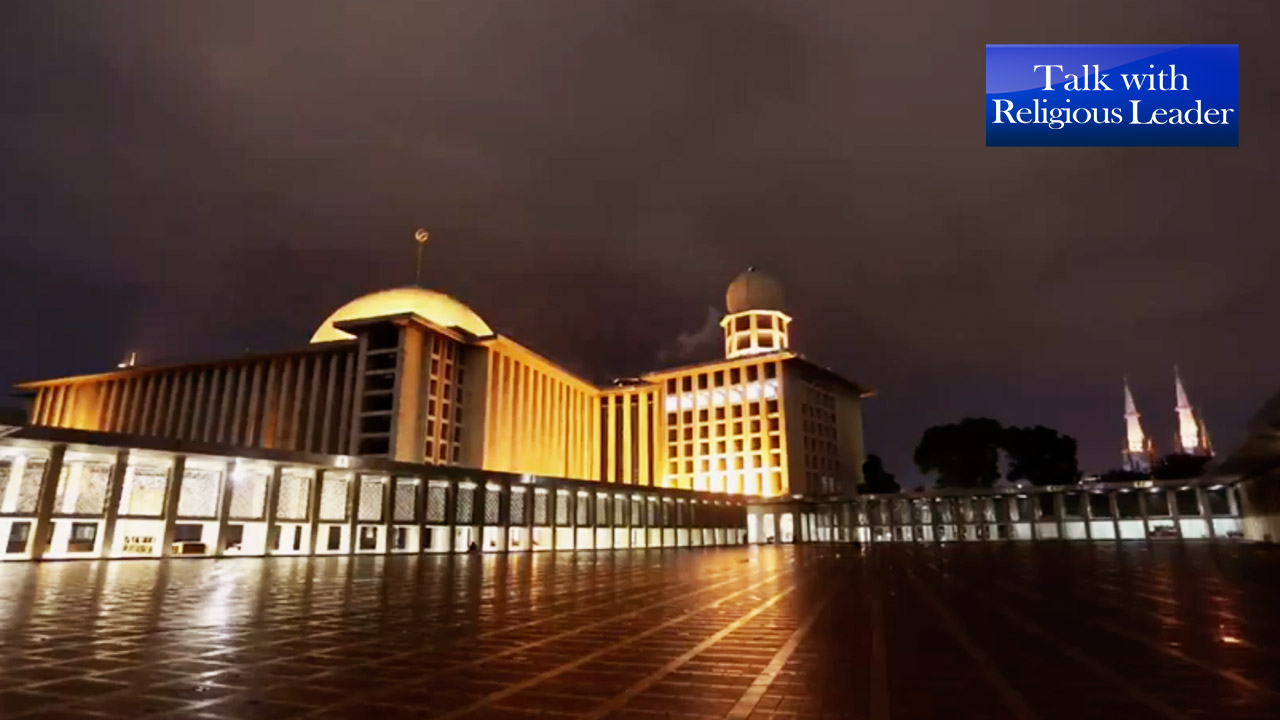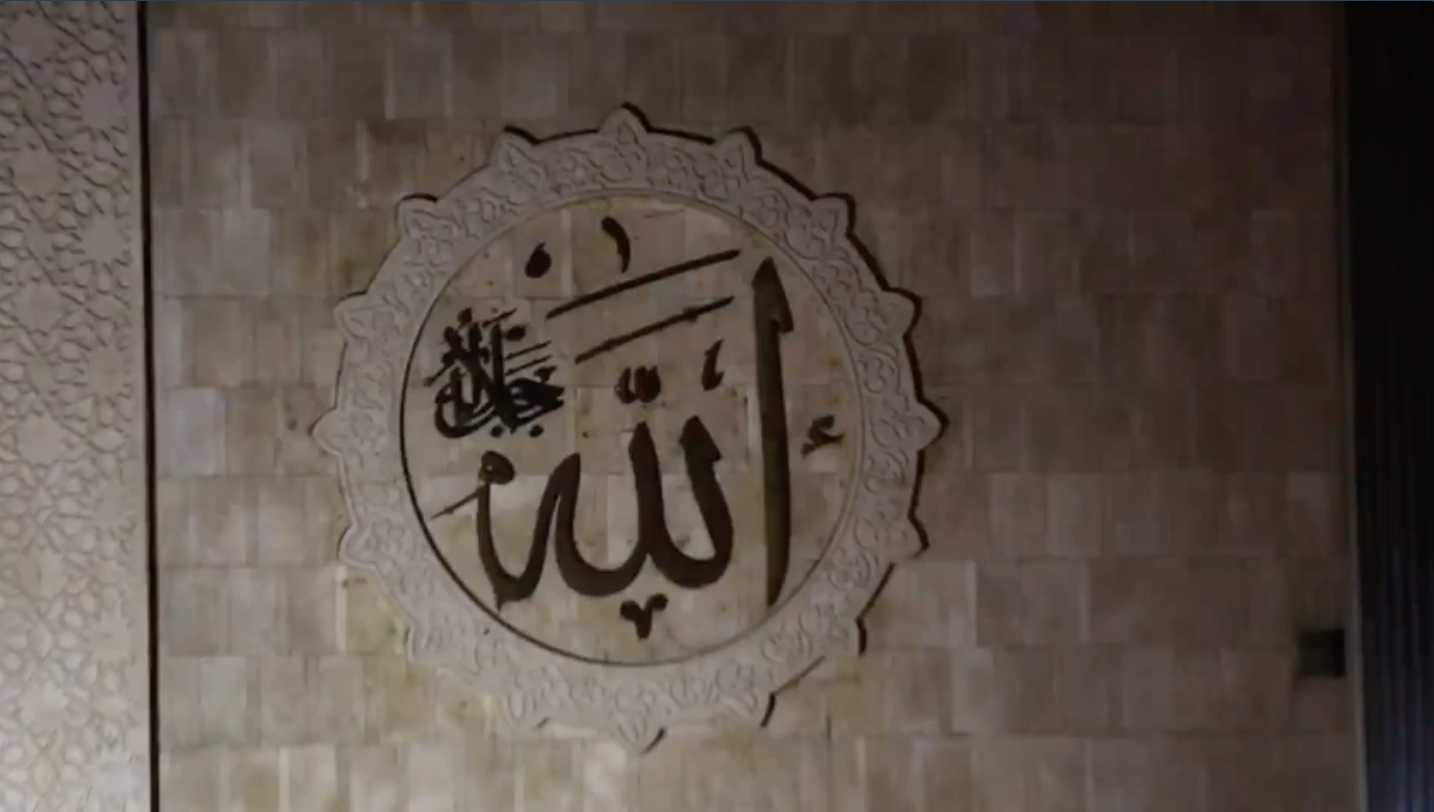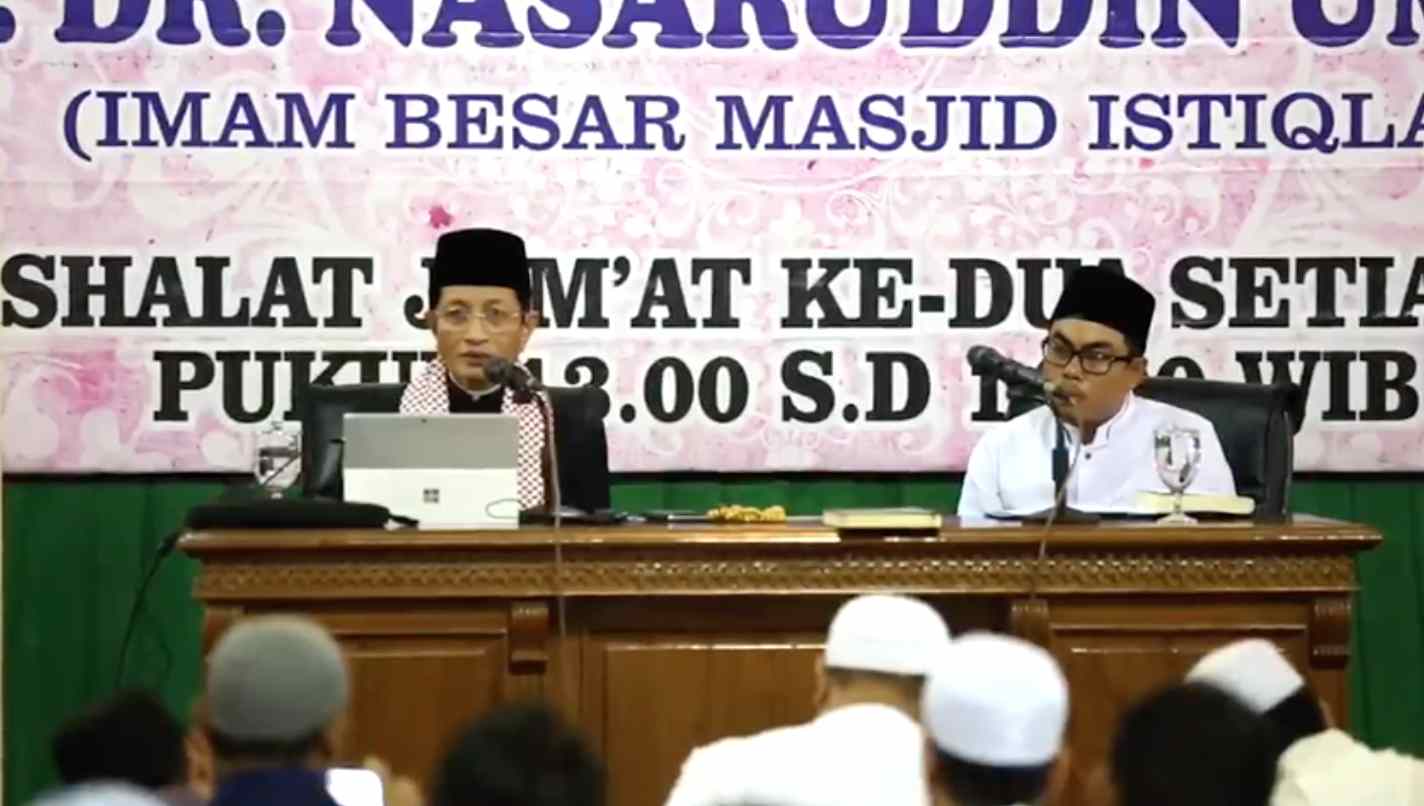
Culture
17:32, 14-May-2019
Islam in Indonesia: Strengthening diversity through religion
Updated
07:53, 16-May-2019
By Silkina Ahluwalia
02:08

Inside one of Southeast Asia's largest mosques, Nasaruddin Umar is conducting his usual Friday prayers. It's a routine he has been doing for the past three years. He is the Imam in Istiqlal Mosque, one of Indonesia's oldest places of worship.
Islam is considered Indonesia's largest religion, not an official one but almost 87 percent of the country's population practice Islam. For religious leaders like Nasaruddin, the challenge lies in how people interpret Islam in our current modern world. Speaking to me from inside the Istiqlal mosque, Nasaruddin explains how Indonesia has one of the world's most liberal and moderate Muslims.
"One of the best Muslim tolerance in the world is Indonesia. Here in Istiqlal, we are also seen as a symbol of gender equality. You cannot find another mosque like this, especially in Middle Eastern countries, where women are far separated from the men. But here, women stand on the right and men on the left. So men and women are so close and can access the first lane," said Nasaruddin.

Islam is one of the largest religion in Indonesia with more than 87 percent of the population practicing the religion. /CGTN Photo
Islam is one of the largest religion in Indonesia with more than 87 percent of the population practicing the religion. /CGTN Photo
That type of mindset is something Nasaruddin has worked to cultivate in the country. Many Muslims in Indonesia take the sermons in their mosques very seriously, which means leaders of the mosques should continue to set good examples to the Indonesian public.
However, that has not always been the case. The Religious Affairs Ministry has had to crackdown many mosques on the outskirts of the country for continuing to spread messages of hate and extremism to the masses. Aside from that, religion has played a huge role in politics in recent years. All of those challenges make it difficult for religious leaders to tackle Islam in the modern world.
"Every month we have a special meeting where we invite the leaders and chairs of many religions to discuss together every problem of society. For me, hardliners are not Muslim. There is no terrorism in Islam. Islam is a religion of humanity. For us, humanity is number one. According to the Quran, we have to respect other people without seeing which religion they have. Terrorism and hardliners are also not Indonesians. They are very parallel with the substance of Islam," said Nasaruddin.

Nasaruddin Umar continues to spread messages of peace and harmony through Islam. /CGTN Photo
Nasaruddin Umar continues to spread messages of peace and harmony through Islam. /CGTN Photo
Nasaruddin also spent most of his career as the Vice Minister of Religious Affairs in Indonesia. During those years, he realized the issue lies in the division. Many other religions and belief systems were not willing to come together to tackle problems together.
"One of the most important problems we faced was how to invite other religions to come and work together in a human perspective," said Nasaruddin.
Throughout the years, Indonesia has been seen as a country divided by religion. Nasaruddin and his team are working together to use similar languages that can bring people of different religions and backgrounds together.
"We can use the religious language to motivate our society to participate to build Indonesia with a modern perspective. In the future, Indonesia can become the trendsetter for Muslim countries. Not only for the tolerance factor but also other problems in our society."
Approaching any religion in this modern society can be challenging, but Nasaruddin's outlook for Indonesia is a positive and refreshing reminder that in one of the world's largest Muslim-majority nation, peace can thrive through the use of religion, alongside diversity and equality.
(Cover: Istiqlal Mosque is the largest mosque in Southeast Asia. /CGTN Photo)

SITEMAP
Copyright © 2018 CGTN. Beijing ICP prepared NO.16065310-3
Copyright © 2018 CGTN. Beijing ICP prepared NO.16065310-3